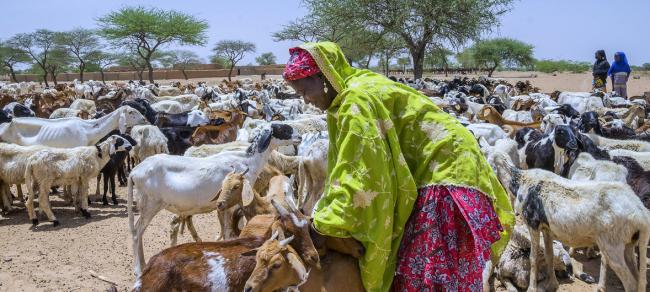
Algeria must stop arbitrary expulsion of West African migrants in desert: UN migration rights expert
New York, Oct 12 (IBNS): Atrocities suffered by child and adult migrants from West African States “should shock the conscience of humanity” into action, a UN rights investigator said on Thursday, before calling for Algeria to halt the collective expulsion of thousands of foreign nationals to Niger.
The appeal for help from the international community from UN Special Rapporteur on migration Felipe González Morales, follows his official visit to Niger; a hub for those looking to leave in search of new opportunities, for decades.
In a statement, he cited testimonies of migrants exposed to “unimaginable atrocities”: trafficking, torture, arbitrary arrest and detention, rape, as well as worker-exploitation and enslavement. They had taken migrant routes through Sudan, Chad, Libya and Mali to Niger.
He highlighted how the 2015 law on illicit smuggling of migrants had resulted in a “de facto ban of migration towards the north”, prompting people to look for other, even riskier alternatives. lWhile commending Niger for its “generosity and solidarity” in hosting refugees, Mr. González Morales noted how in recent years restrictive migration laws and policies had made it a “virtual southern border of Europe”.
“Despite its purported aim to prevent and combat the illicit smuggling of migrants, the implementation of the law has led to the criminalization of migration and violations of the human rights of migrants,” the Special Rapporteur said. “Multiple sources have indicated that instead migrants have shifted to more dangerous, longer and more expensive routes.”
The independent rights expert, who was appointed in June 2017 by the UN Human Rights Council, insisted that migration policies “cannot solely rely on security considerations” and must have human rights “as a central component”.
Any help from the international community – and the European Union – should help Niger “in re-focusing” its migration management strategy, he said.
This would involve strengthening national institutions, so they could cope with large movements of migrants, enhancing monitoring of their human rights, and supporting development projects in local communities.
The Special Rapporteur also called on Algeria to halt the alleged collective expulsions of Nigerien and West African migrants to Niger immediately, noting that this had involved more than 17,000 people this year so far.
The allegations have been denied by Algeria.
“I heard testimonies of migrant women, men and children who were raided in their homes in the middle of the night, arbitrarily arrested and detained, beaten and ill-treated, transported in trucks and dropped 15 kilometres from the border with Niger,” Mr. González Morales said.
“These migrants are forced to walk through the desert, without any assistance from Algerian or Nigerien authorities, until the first Nigerien village, 20 kilometres away from the border.”
The development comes amid ongoing efforts by the international community to develop solutions for migrants and Member States by means of a Global Compact for safe, orderly and regular migration.
This follows the New York Declaration for Refugees and Migrants’ adoption at the UN General Assembly in September 2016 – recognition, in part, that the issue cannot be managed by one State alone.
The final text of the Global Compact for Safe, Orderly and Regular Migration was adopted in July this year and a high-level summit is planned in Morocco on 10-11 December to discuss its adoption.
While the protection of refugees and the international community’s responsibility towards them is addressed in the 1951 Convention, migrants have yet to benefit from such an approach.
If it is adopted in Marrakesh, the Global Compact will go some way to addressing this, with a series of recommendations and objectives for States that sign it, to better manage migration at local, national, regional and global levels.
FAO/Andrew Esiebo
Support Our Journalism
We cannot do without you.. your contribution supports unbiased journalism
IBNS is not driven by any ism- not wokeism, not racism, not skewed secularism, not hyper right-wing or left liberal ideals, nor by any hardline religious beliefs or hyper nationalism. We want to serve you good old objective news, as they are. We do not judge or preach. We let people decide for themselves. We only try to present factual and well-sourced news.







